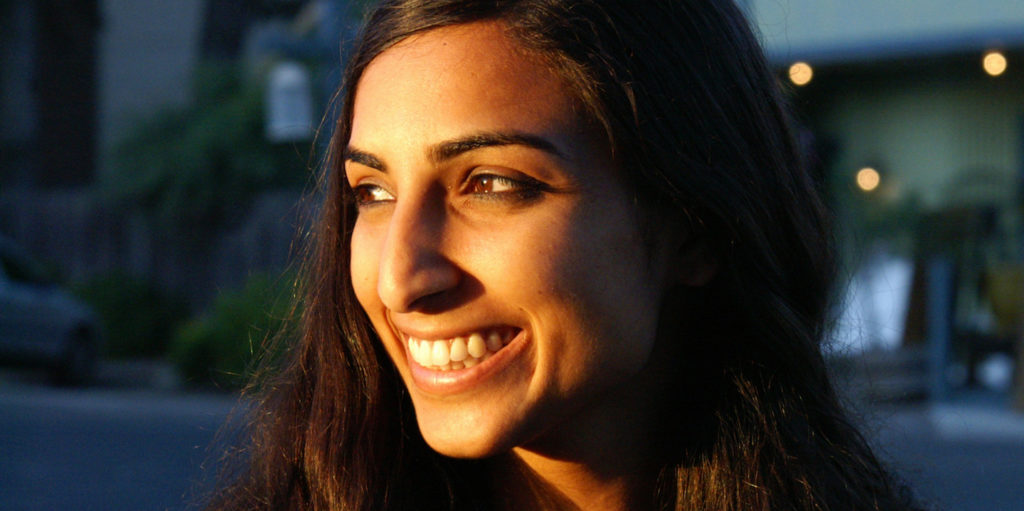By Glenn Billman, news staff
Prominent Sikh interfaith leader and activist Valarie Kaur discussed the importance of love, unity and activism with approximately 60 Northeastern students and faculty in the Curry Student Center Friday at the second annual New England Interfaith Student Summit (NEISS).
Workshops for the Interfaith Student Summit took place from 9 a.m. to 6 p.m. Friday, including introductory classes to various religions, sessions on pluralism in a divided society and a screening of Kaur’s documentary about the effects of the Sept. 11 attacks on the Sikh community, “Divided We Fall: Americans in the Aftermath.”
“Interfaith is the movement and impulse to build bridges of dialogue and cooperation across religious and philosophical divisions,” said Alexander Levering Kern, the executive director of the Center for Spirituality, Dialogue and Service. “To bring people together, to explore shared values, to understand each other’s teachings and traditions. And it’s especially important because religion is the cause of or is complicit in so many conflicts around the world, from Northern Ireland to the Middle East to the streets of Boston.”
The Interfaith Student Summit was supported by 24 NEISS partners, including religious groups and 12 New England schools. The interfaith movement aims to unite people of different faiths around their shared values through dialogue, Kern said. This year’s NEISS celebrated 12 different faiths in various sessions, from Paganism to Jainism to Hinduism.
The keynote address was rescheduled to Friday due to Thursday’s blizzard. Kern said he estimated around 60 people attended the summit, about half of the original number expected.
Kaur, who is also a filmmaker and civil rights lawyer, focused on the importance of compassion, which is the driving force behind her newest campaign called Revolutionary Love. She launched the campaign Thursday to promote acceptance and activism in the current political climate. Kaur said Revolutionary Love entails supporting and embracing marginalized groups—such as people of color, Muslims, Sikhs, refugees, members of the LBGTQA+ community and women—as well as nonviolently resisting policies that threaten individual rights and engaging in self-love.
“No matter how times we take out individual bad guys, there will be more,” Kaur said. “Our job is to change the cultures and institutions of power that nurture the violence in them in the first place. That’s revolutionary. That’s revolutionary love. Because in so doing, in changing the cultures and institutions that resulted in this presidency, in changing the cultures and institutions that allow these policies to be normalized, we liberate our oppressors, too.”
Kaur said her journey with religion and justice began when she was bullied for her beliefs and the color of her skin growing up as a Sikh child in rural California.
“The kids at school told me I would go to hell because I was not Christian and called me a black dog, sent me home in tears,” Kaur said. “My mother, she would embrace me, but my grandfather, he would sit me down and tell me a story of who I was, and it was the story that saved me.”
Kaur’s grandfather told her the story of Guru Nanak, the founder of Sikhism whose advocacy for unity and acceptance helped inspire Kaur’s perspective on activism. Nanak taught that there is a voice inside everyone that advocates for fear, division and egoism. By quieting that voice, Nanak said people are able to gain a new perspective of love.
“When we are in love, it calls us to look upon the faces of those who are our partners or our children and then look upon the faces of those who do not look like us, those who we do not know, and say brother, sister, I see you, I choose to love you,” Kaur said.
Taylor Straatmann, president of the Northeastern Interfaith Council and a junior economics major, said the interfaith movement is about establishing relationships despite differences.
“I think one of the big things about interfaith is that it’s really about learning and understanding each other, not really deciding who’s right or coming to an agreement, but really about building friendships and relationships and learning about another person’s story and how to share your own in a way that lets more people understand each other better,” Straatmann said.
During her address, Kaur acknowledged that large groups of people felt compelled to become more active after the 2016 presidential election but lacked a direction for social change. She concluded with a call to action, urging the audience to keep pushing back against injustice while spreading love, forgiveness and acceptance. When she finished, the audience gave her a standing ovation.
“I’m not going to tell you it’s going to be okay,” Kaur said. “I’m asking you to fight. I’m asking you to go toward the flames. I’m asking you to believe in love as your shield. I am asking you to consider practicing revolutionary love.”
Freshman international affairs major Francesca Giorgianni said she thought Kaur’s speech was powerful and motivating.
“It just made me sort of reflect inward. Am I doing enough?” Giorgianni said. “With recent events, I’ve just been trying to find that push to start actually actively participating, and I think this is exactly what I needed to start doing that.”
Kern said he hopes that students left the summit with renewed hope, courage and consciousness.
“We all, every one of us—every religion, every race, every sexual and gender identity, every person, documented, undocumented—we all have a role to play in the healing of this Earth, in building a more just and peaceful and sustainable world,” Kern said. “We hope through this summit to create conversations across our differences, to build common cause across our diversities, to ultimately build a better world.”
Photo courtesy Valarie Kaur









